Description
ABSTRACT
Book Review – A Critique and Commentary on Sovereign Debt Management
Tony Odiadi*
TITLE: TOWARDS A REORGANISATION SYSTEM FOR SOVEREIGN DEBT-AN INTERNATIONAL LAW PERSPECTIVE
AUTHOR: DR. HOLGER SCHIER
PUBLISHERS: MARTINUS NIJHOFF PUBLISHERS
PAGES: 312
PRICE: NOT STATED
Easily, one of the most engaging issues facing scholars, financial experts and policy makers is the question of how best to manage the debt owed by sovereigns. Debt obliges a repayment. However, in getting back the credit extended to a state or sovereign, a person faces all manners of legal obstacles, many of which are derived from procedural complexities and extant principles at the very heart of western legal thought and jurisprudence.
In a world in which billions of dollars are owed as debt by state and state entities to other states, multilateral institutions, banks and private financial institutions, there exist in truth, a debt crisis that has challenged the entire global financial architecture.1 As a result, it is easy to appreciate the consistent academic and scholarly interest that the subject matter continues to generate. The phenomenon of sub- Saharan debt in the global financial arena tasked the system with several schemes like the HIPC,2 debt rescheduling, debt equity swap, debt securitization3 and the rest initiatives put forward to rescue the situation without much success.
A critical contribution to the growing body of literature on the complex subject matter is this one by Dr Holger Schier. The book ‘Towards a Reorganisation System for Sovereign Debt4‘ offers a robust interrogation of the subject matter as it takes on aspects of sovereign debt management, and the framework for reorganisation of the existing system in a detailed and rigorous manner with a good grasp of all the issues. In doing that, the author articulated some ideas that can change or strengthen the existing system with a view to achieving greater efficiency. This piece is both a critique of the book as well as a broad commentary and analysis of the perspectives put forward in the book and more.
Sovereign debt and the incapacity of some states to pay remain an enduring phenomena, yet, no settled international financial or legal system exist to deal adequately with the issue. So an author will have to weave through and produce from an amalgam of existing legal thought, from practice and procedure, some coherent set of principles that can come in aid to deal with the sovereign insolvency challenge.
Legal analysis, unlike economic or financial analysis, relates to risk allocation to the extent that the core concern is; who will bear the risk from the consequences of a relationship?
* LLM, BL, MCIArb (UK). Visiting Scholar, Georgetown University Law Center, Washington DC
- “The debt crisis threatened to undermine the very foundations of global financial stability. If emerging nations were allowed to default unchecked, this would have led to a complete collapse of the international financial structure. The survival of international creditors, such as banks, who relied on getting paid for loans would be in jeopardy. Much like the risks surrounding the sub-prime crisis, this could have resulted in a catastrophic run on the banks, a global financial meltdown and all that it entails- unemployment, galloping inflation and economic depression”. Moyo, Dambisa, Dead Aid- Why Aid is not
Working… (2009) 18 - Heavily Indebted Poor Countries Initiative
- Odiadi, Anthony ‘Sub-Saharan Debt: The Imperative of Contract Adjustment’ (2005) GULC2005 which discussed likely
defences under the Contract law jurisprudence- <http://ssrn.com/abstract=1082532> <www.odiousdebts.org/odiousdebt/index> Accessed 5 February 2015 - First published in 2007 by Martinus NIJHOFF Publishers, Leiden & Boston

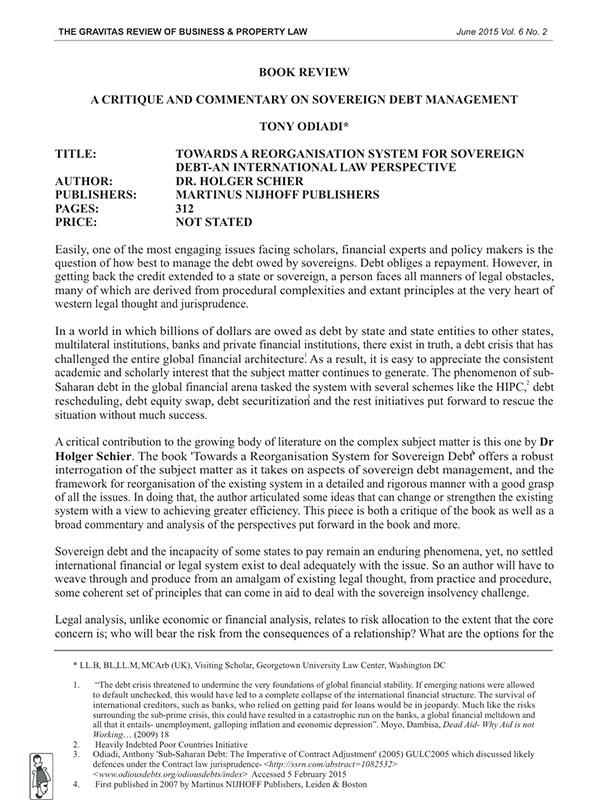
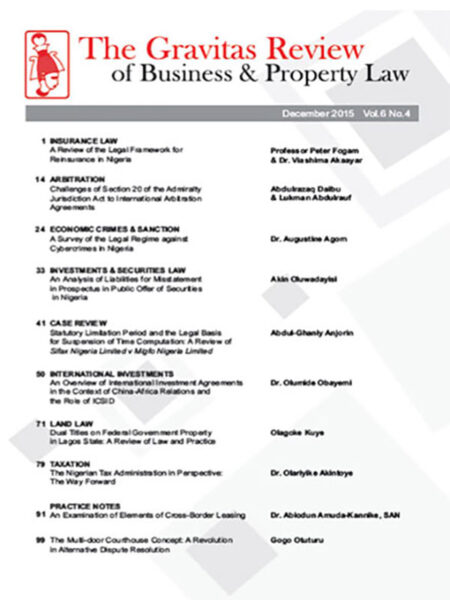
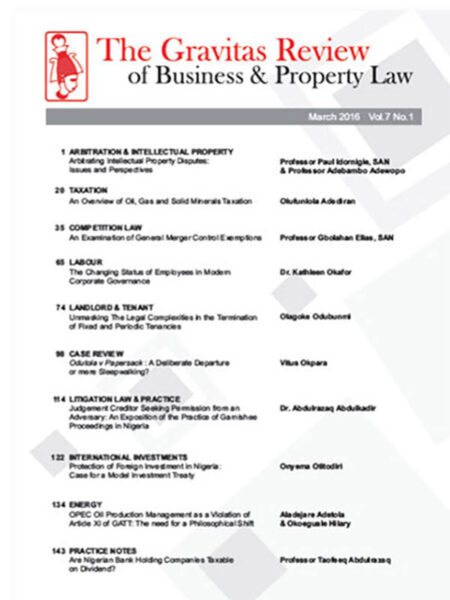
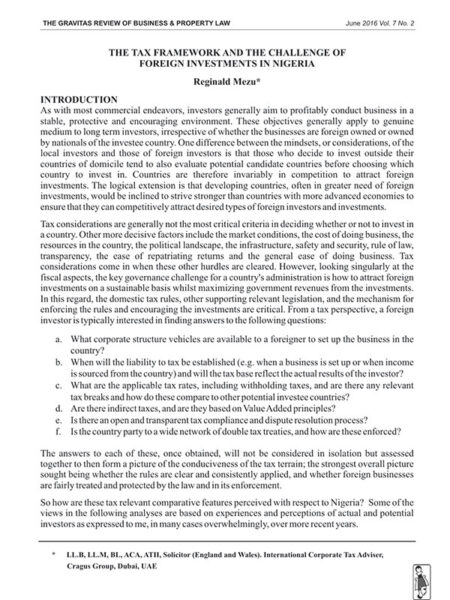
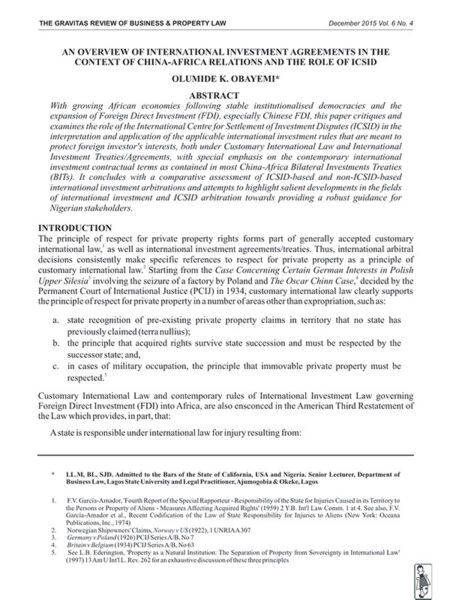


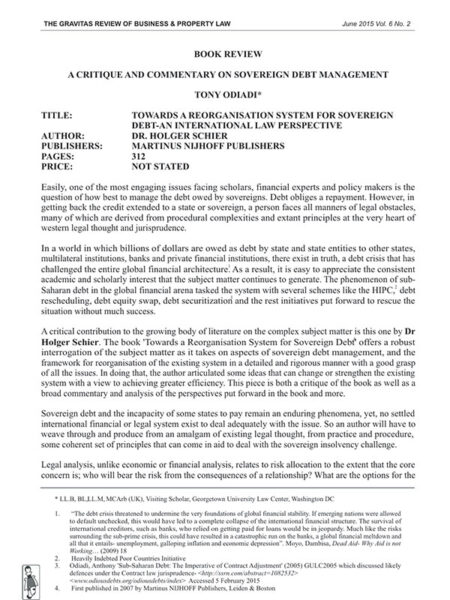
Reviews
There are no reviews yet.